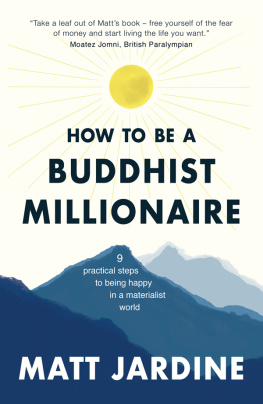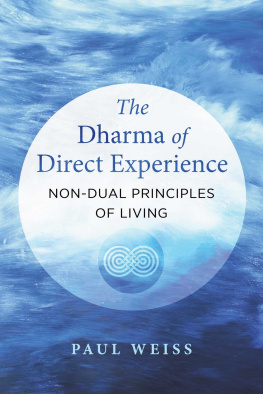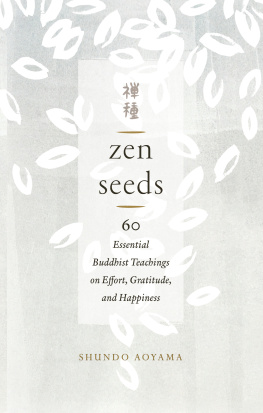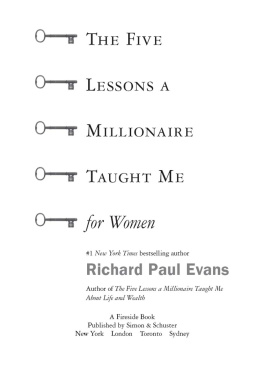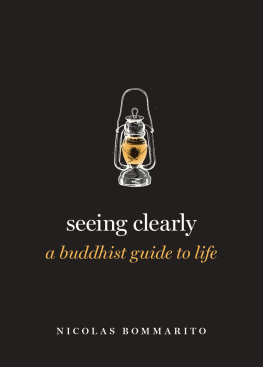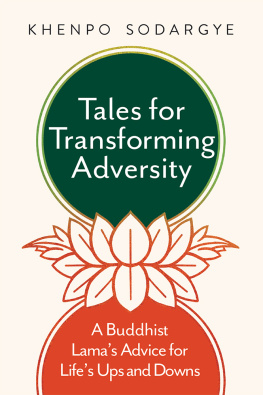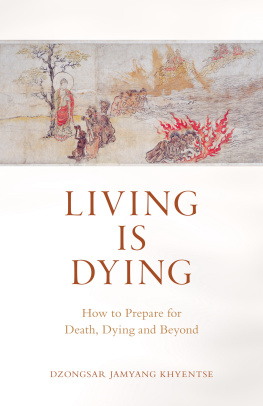HOW TO BE A
BUDDHIST
MILLIONAIRE

To all who search for a better way
Contents
Introduction
Even the Dalai Lamas robes cost money.
Although His Holiness may not have to reach
into his own wallet, someone somewhere will
have to pick up the tab.
Anonymous
F or your own sake, answer honestly. If you had a million pounds would you be living your current life? Would you be doing the work you currently do? If the answer is yes, and you are happy with that, then congratulations. If the answer is no and you are not happy, dont worry, you are not alone and this book is for you.
Polls reveal that many are not living their ideal life in regard to work and career. Indeed, it appears that as many as seven out of ten of us in the western world are not leaping out of bed to embrace the work day ahead. Try asking the million-pound question above at the next social gathering you attend and test these numbers for yourself. Youll be surprised.
If you are not living the life of your dreams, then what are you doing? Probably working too hard for too little, right?
With a third of our lives spent working and another third sleeping, little time is left in which to do the things that inspire, lift our souls and fully engage us mentally, physically, emotionally and spiritually. This seems an awful waste of life to me.
But there is hope. If the polls are correct, nearly a third, 30%, are living fulfilling lives and doing work that they adore work that they would do irrespective of the money.
By doing purposeful, profitable work these 30-percenters are doubling the amount of time spent doing things that, to them, have great meaning.
Not only are they doing work for which they happily get out of bed in the morning, rather than crawl back under the covers after hitting the snooze button, they are meeting financial obligations while doing so.
This book is going to show you how you can too. To be considered a success, modern life and the economy demand constant growth. In our financially driven world if we are not growing, we are regarded as failing. With the pressures caused by this economic model, we must sprint just to stand still. We end up chained to money and making life choices that are mostly driven by economics and the demands of our bosses, customers and financial obligations.
With money so central to our universe, it is undeniable that it has become our master, our God even, whether we care to admit it or not.
We might insist and may genuinely believe that we are the captains of our fate and the masters of our soul but it is the very often the things in life that we spend unconsciously denying, avoiding or appeasing that are at the helm, not us. Money has a deep-rooted hold over us all.
However, this is not a book about making money or a bible of economics. There are plenty of other books to teach you about wealth creation. From these you may learn how to look after the pennies that have fallen down the back of the couch. You may work out how to sell your tenth apartment for impressive profits. You may also learn about downsizing and retirement strategies and use the savings to buy a one-bedroom canal boat to sail off into the sunset of your old age.
This is not one of those books because, whatever the financial approach you employ, all money strategies are inherently flawed. By trying to escape poverty and amass wealth, and however successful you are at this, you are still bound by the rules and laws of money.
We are all familiar with the mantra handed down to us from our parents and our society: go to school, study hard, graduate from university, get a good job, settle down, save, invest, support a family, retire well and die, taking none of our money with us!
It is a game the majority of us are taught to play. Some will win, while others will lose. When was the last time you sat down and questioned the healthiness of this default mode of living? Is it time to investigate alternative options?
This book is concerned with finding another way, a new game with different rules. It will try to play a game where to win, in the modern sense of the word, doesnt necessarily mean to succeed, and where, even in a state of loss, you will still look forward to the new day.
When looking up at the heavens on a clear bright night and marvelling at the stars, the planets and the universe, our minds are not usually filled with musings on money:
Wow, I wonder who pays for all those stars?
Has anyone considered franchising the planets?
Who are the majority shareholders of the universe?
And yet, while we theoretically understand that finances do not sit at the centre of the outer cosmos, we cannot escape the fact that they do, more often than not, sit at the centre of ours.
Instinctively, we suspect that there is more to life than work, bills and deadlines. Humans have questioned lifes meaning since the dawn of time. Indeed the institutions of religion, philosophy and science evolved, for better or worse, from an attempt to make sense of the world and reveal lifes higher purpose. Even the most pessimistic atheists among us, those who believe we live a mechanical and spiritless life until we die, have, at one time or another, also looked up at the stars and considered their source. After all, even a mechanical universe must have an origin.
Scientists, philosophers and religious leaders have more in common than they care to admit; namely, the fathoming of life. But it is religion that has taken the brunt of criticism in recent times.
The stature of organised religion has changed over the centuries. As a consequence of religions inherent frailties and its scrutiny under the microscope of science, many people are embracing a more spiritual, rather than religious, set of beliefs. As critical thinkers we are cutting out the middleman to the divine and forming our own unique opinions on the meaning of life.
We are not, however, throwing the baby out with the holy water by turning to alternative religions and self-appointed searches for existential knowledge. Our religious forerunners have done much to pave the way for where we are today. We are merely upgrading and trusting, at long last, in our own voice to describe God just as the Taoists once chose their yin-yang symbology, and the Nichiren Buddhists their Lotus Sutra chant, to explain God. We are free to explain the unexplainable source of all things in any way we choose.
Do not fear! Just as this is not a book about how to get rich quick, neither is it a new-age or religious book. This is not a book that will require you to stand in front of a mirror to chant, affirm or visualise.
What it will do, though, is ask you to open your mind to ideas and teachings that may be unfamiliar. As uncommon as these ideas might be to your current way of thinking, it is precisely their being different that make them valuable to you. After all, if your way of living were working, you wouldnt be reading this book. All of these ideas, no matter how unusual, have been tried and tested in the field of modern life by myself and the other 30-percenters, I can assure you.
So our task here is to unite the two extremes that are neatly symbolised by the ancient Chinese symbol of yin-yang. At one extreme is the lighter side of yin, characterised by wisdom, imagination, peacefulness, relaxation, satisfaction, persistence and introversion. This is the image of the starving artist, who is creatively fulfilled and in touch with their lifes true meaning but severely lacking in the material world where they must ply their trade. They may be happy but they are broke.
Next page
